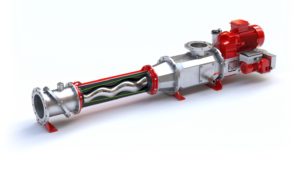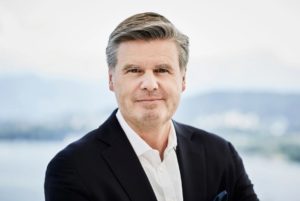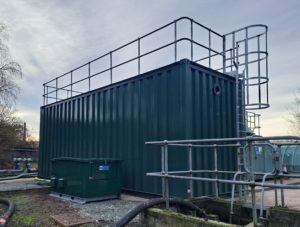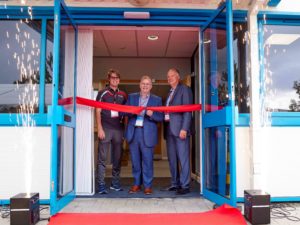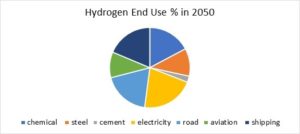Advanced Waste Water Technology Deployed to Australia
An advanced biological treatment for highly loaded industrial process or waste waters is being deployed in Australia by Eimco Water Technologies-AJM Environmental Services (EWT-AJM).
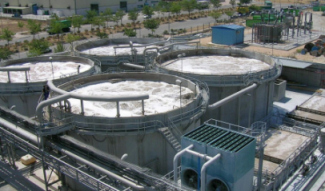
Holem Paper Madrid Spain
The FlooBed Moving Bed Bioreactor (MBBR) technology tolerates higher variations in water quality and flow compared with conventional waste water technologies, yet still maintains its high treatment efficiency
MBBR biological treatment - which consists of micro-organisms both attached to the carriers and suspended in the water - has become the technology of choice internationally for several types of waste water, such as effluent from process industries, landfill leachate and municipal waste waters, says AJM-EWT National Sales Manager, Industrial/Municipal, Mr John Koumoukelis.
“This is a reliable and easy to operate technology that has been employed extensively with great success by the global Eimco Water Technologies Group, for which it is a key technology,” says Mr Koumoukelis.
“The success, originally founded on the pulp and paper industry, has now been extended to cover applications across the industrial spectrum, including food and beverage, manufacturing, resources and municipal. Already its potential has been demonstrated in Australia with the first projects here involving treatment of highly loaded waste water in the food and beverage sector,” he said.
FlooBed processes are used to significantly increase the capacity of existing activated sludge systems, and FlooBed Bioreactor technology is also suitable for covering the total effluent treatment of an industrial plant..
In contrast to traditional activated sludge processes, most of the microbes grow as biofilm on surface of the freely moving carriers. The plastic carrier elements inside FlooBed Bioreactor have a large surface area and a structure which is optimized to protect the biofilm from abrasion. This allows a high amount of biomass inside the reactor and the needed reactor size can be kept small. Savings in civil work costs are remarkable with the FlooBed process, says Mr Koumoukelis.
Carriers are made of plastic, and their density is slightly lower than that of water. Because of this, carriers can be easily mixed through the EWT aeration system, which covers the entire reactor bottom. The process does not require backwashes, which are typical for conventional biofilm processes and consume a lot of energy, in addition to interfering with functioning of the process.
FlooBed Bioreactor and Activated Sludge System as an Upgrade
The combination of a high-load FlooBed Bioreactor and a low-load activated sludge plant is an efficient and stable solution for improved industrial effluent treatment. With FlooBed Bioreactor the loading of a treatment process is reduced and peak loads are efficiently managed. This enables stable functioning of the following activated sludge stage and gives good quality discharge as a final result.
Industrial effluents typically have high concentration of organics and there are significant variations in both flow and concentration. FlooBed BAS utilizes the advantages of conventional biofilm processes and combines them with the best features of activated sludge plants.
The compact FlooBed BAS process can easily be installed both in greenfield factories or embedded into existing treatment systems, which are then modified to modern FlooBed BAS processes.
Benefits of FlooBed Bioreactor Based Processes
- Good treatment efficiency => low residual concentrations
- Stable discharge water quality
- A short start-up in the beginning and also after accidental or planned shutdowns
- Excellent capacity for handling toxic compounds and load variations
- Low sludge production
- Small construction costs
Source: Ovivo Inc.

